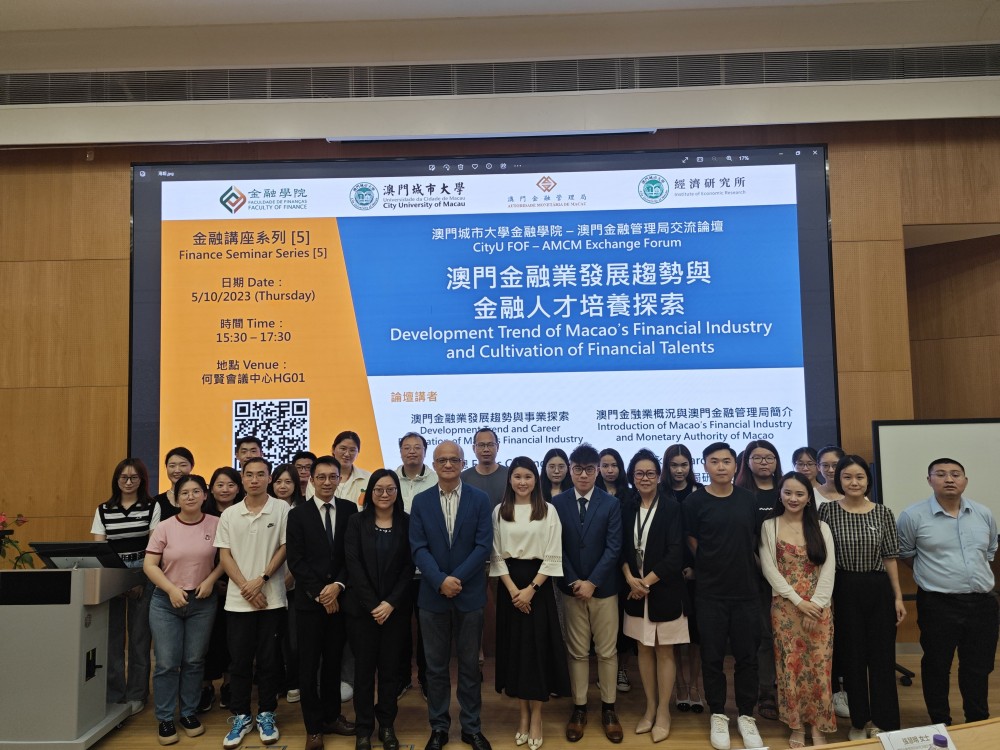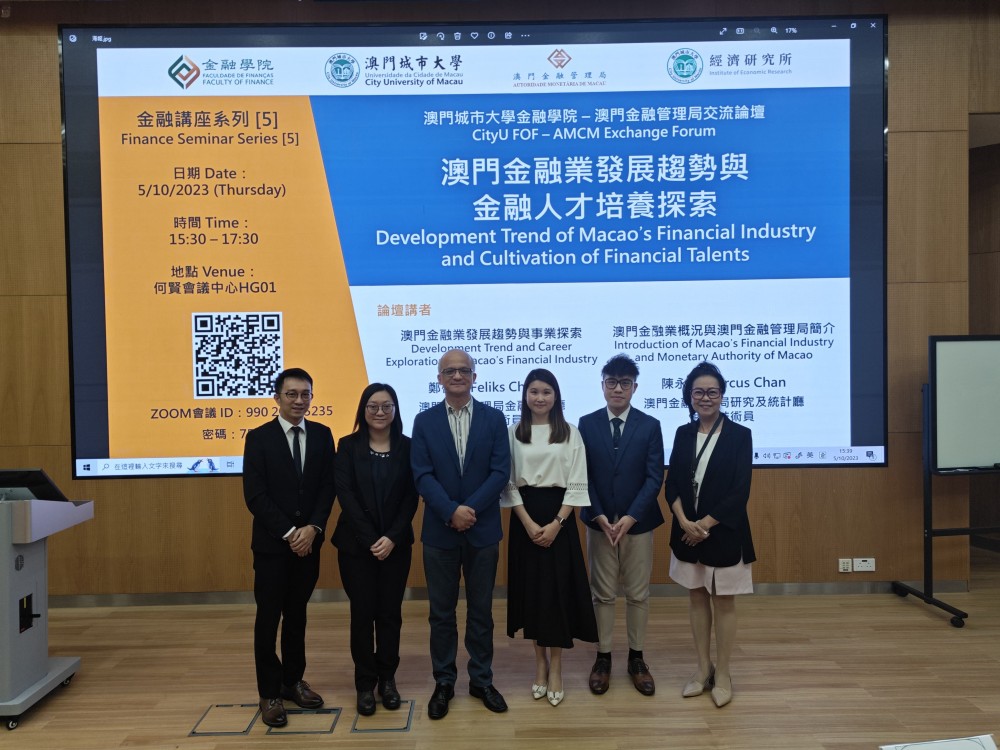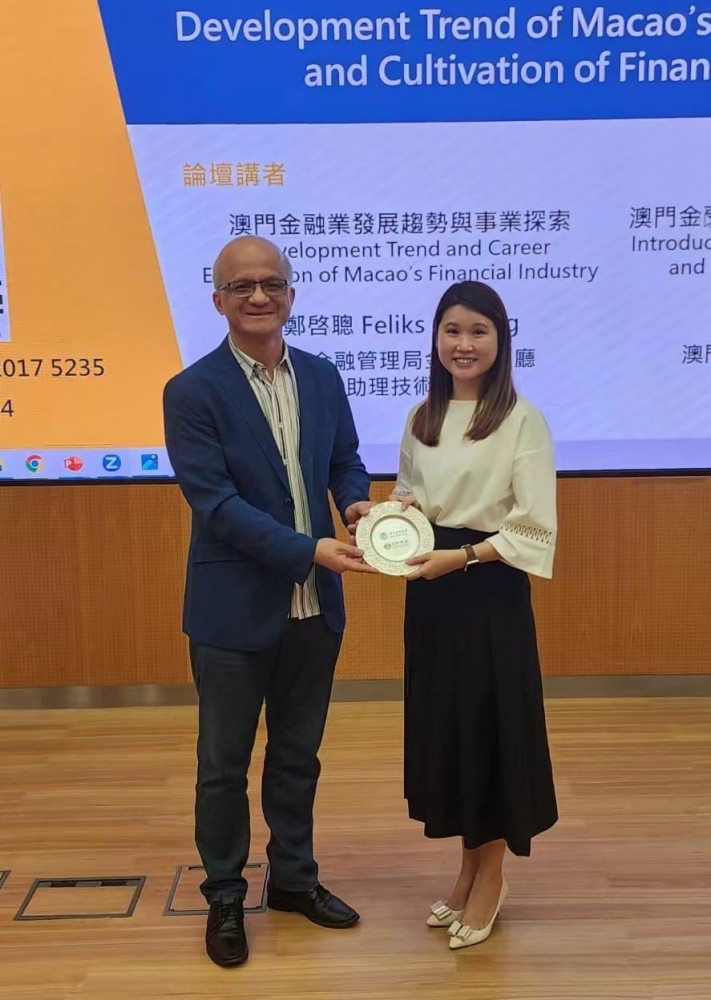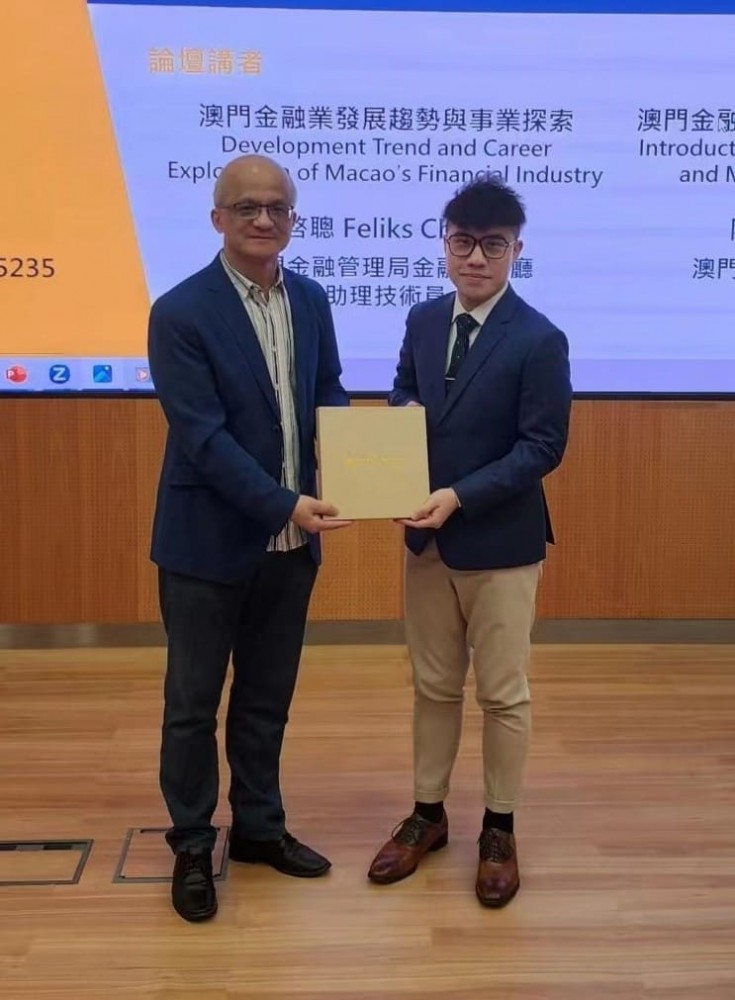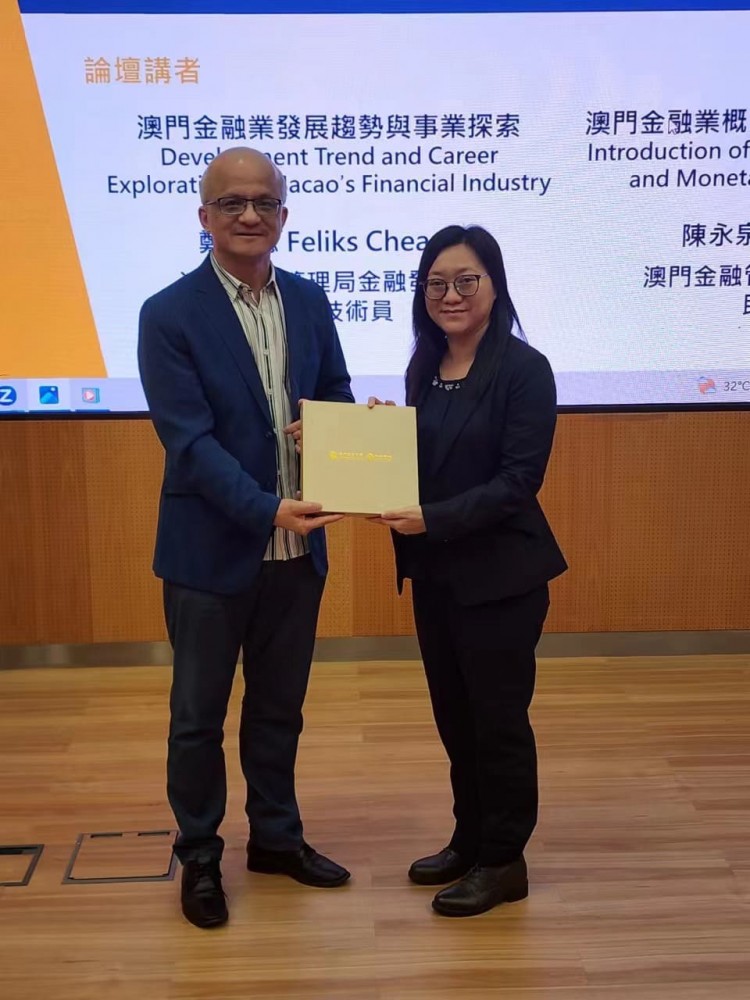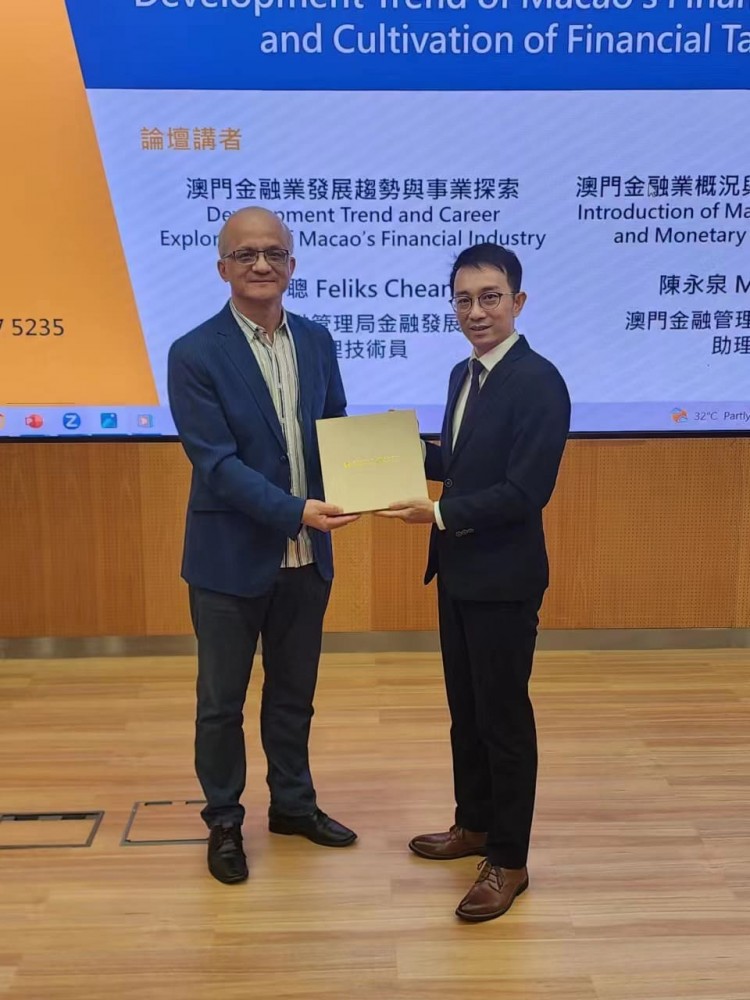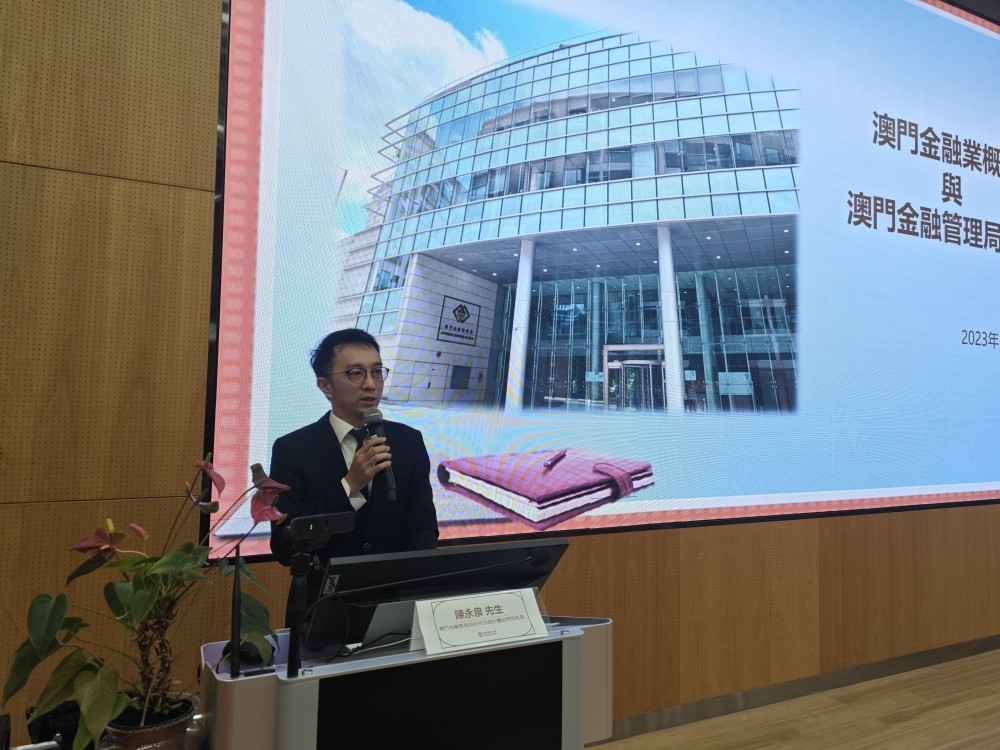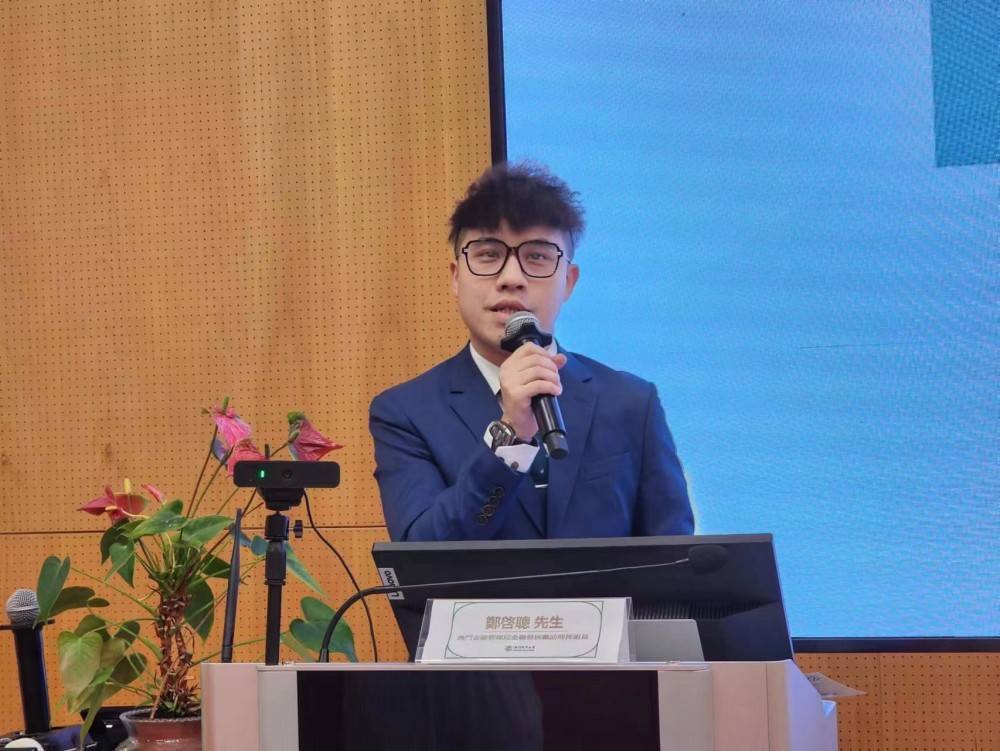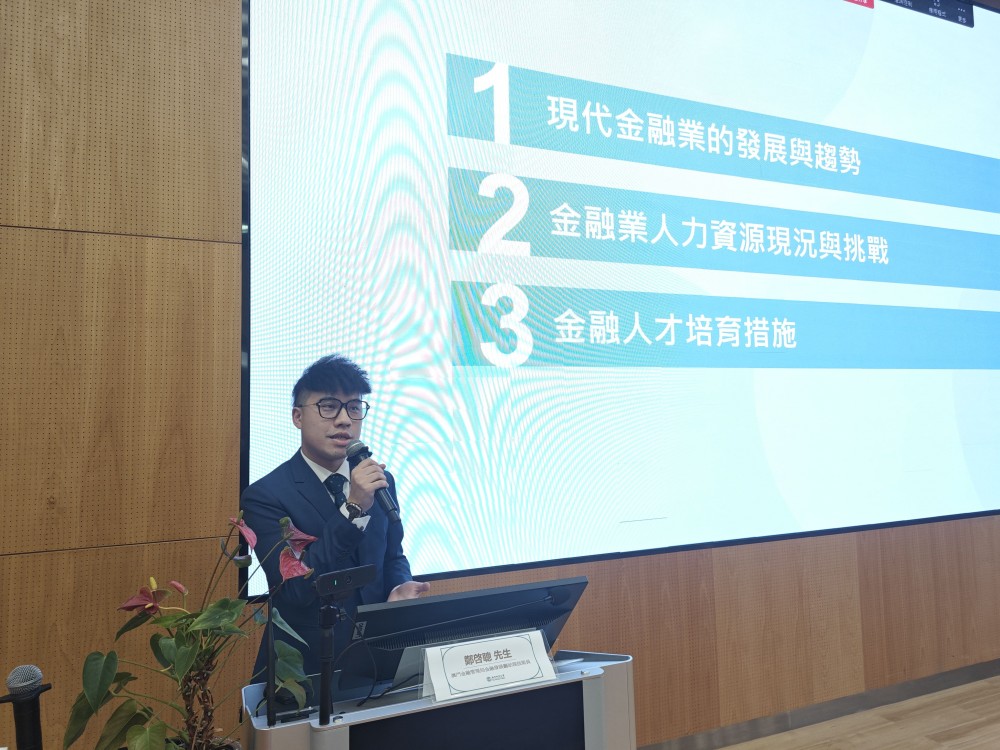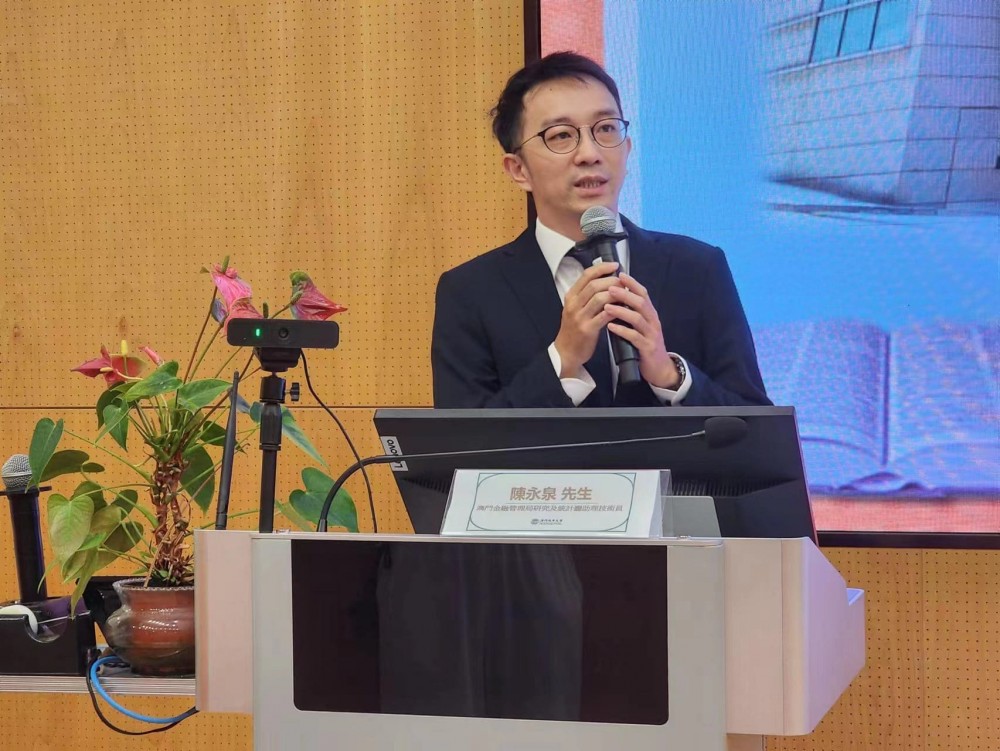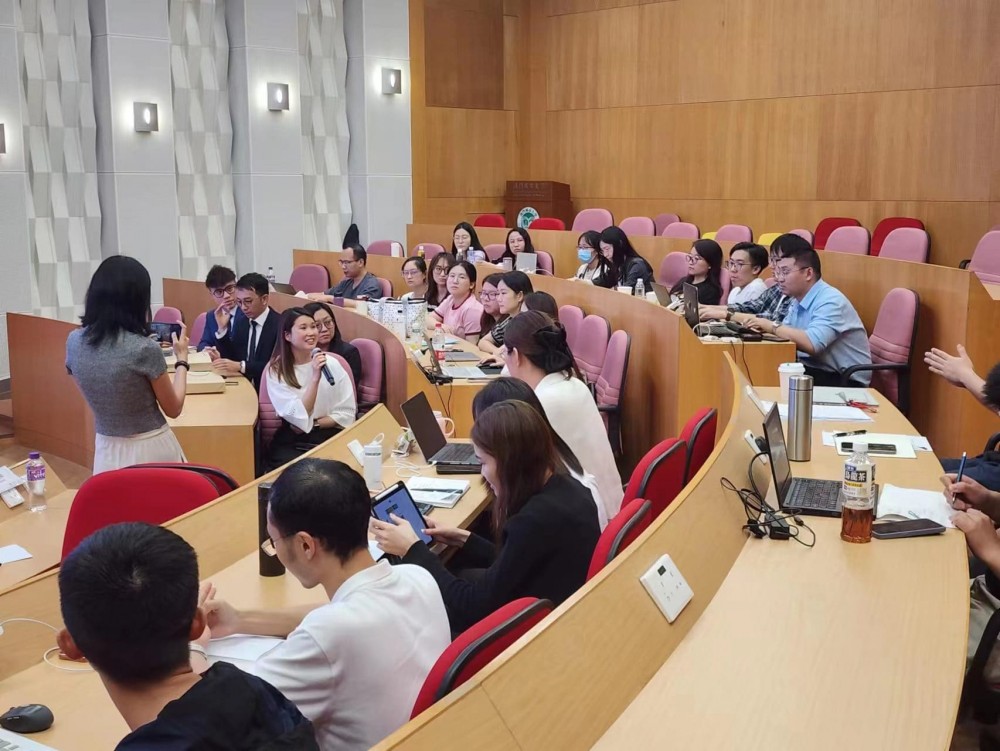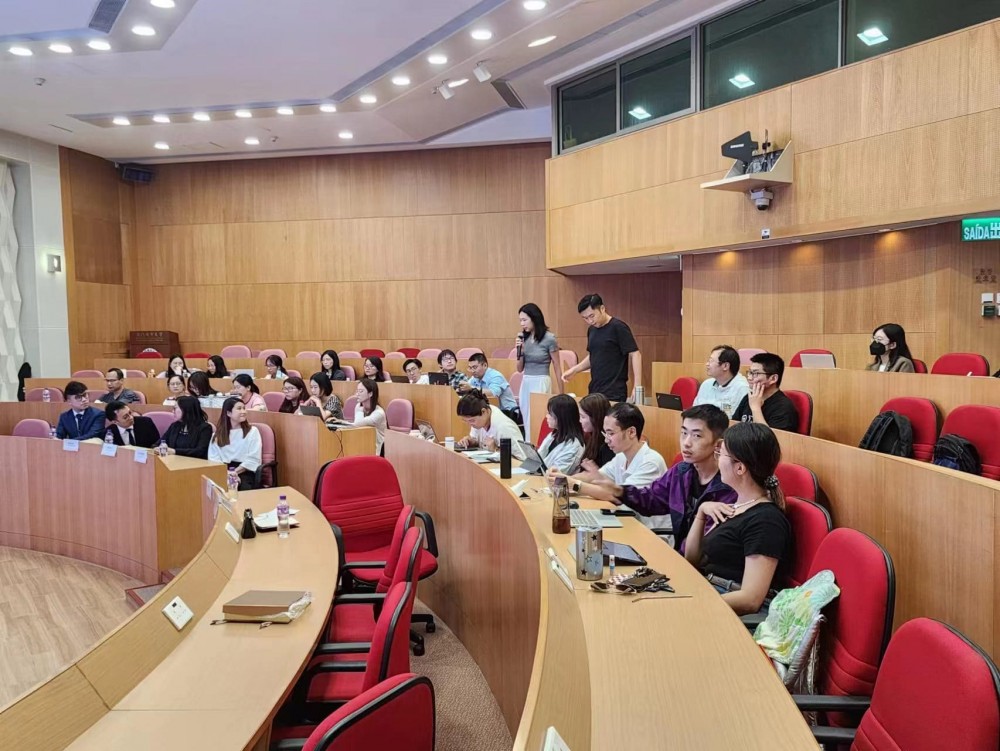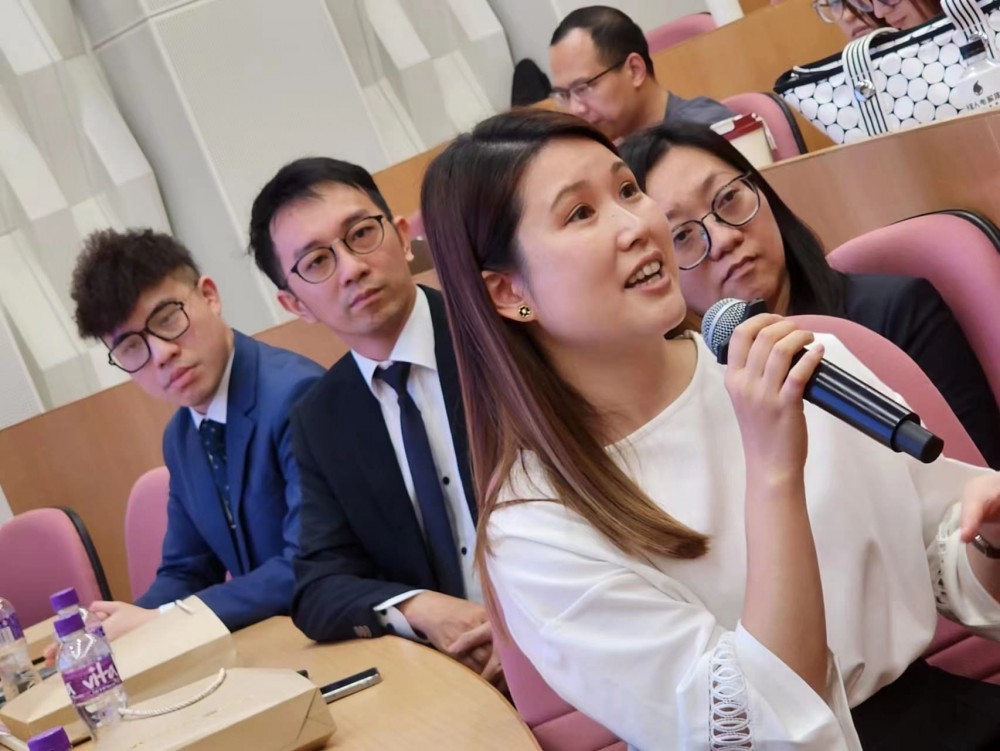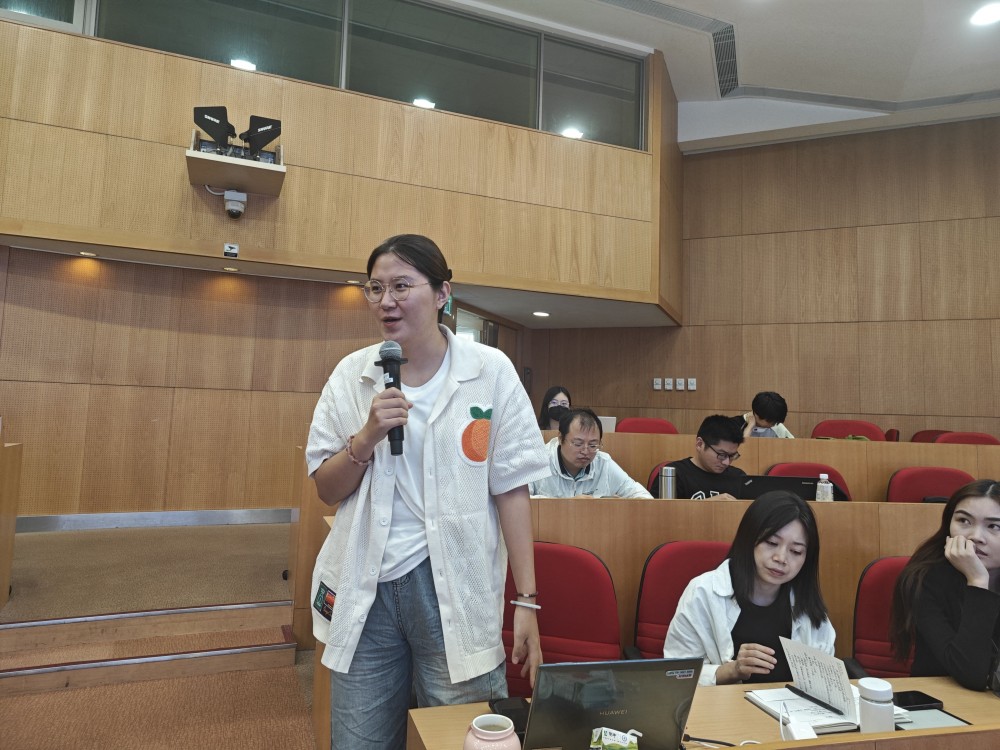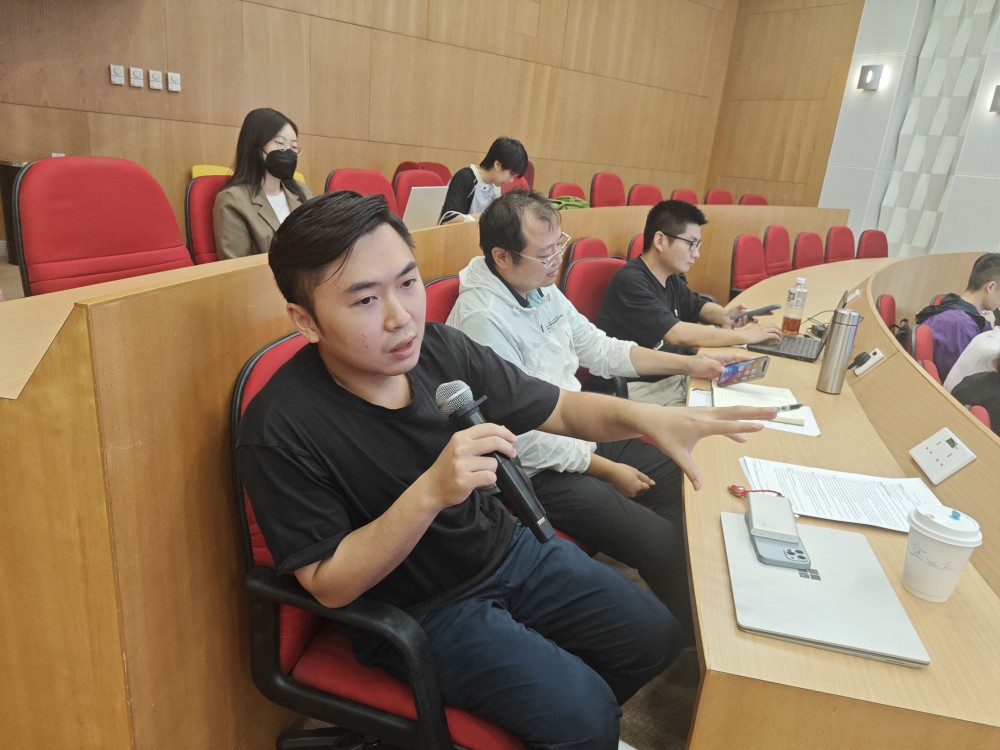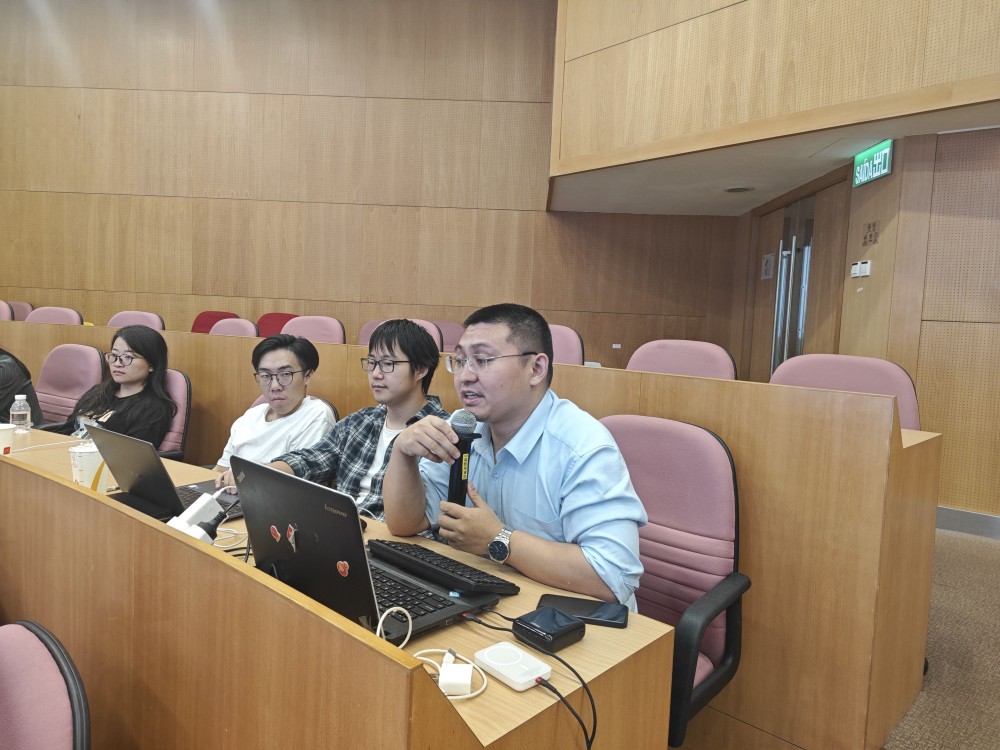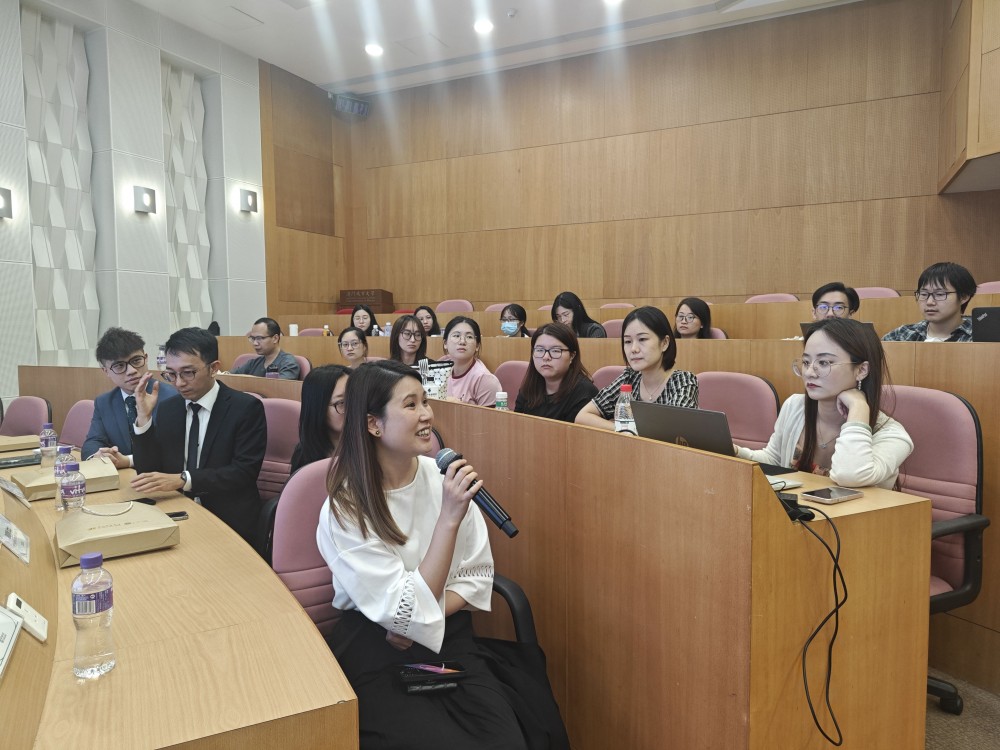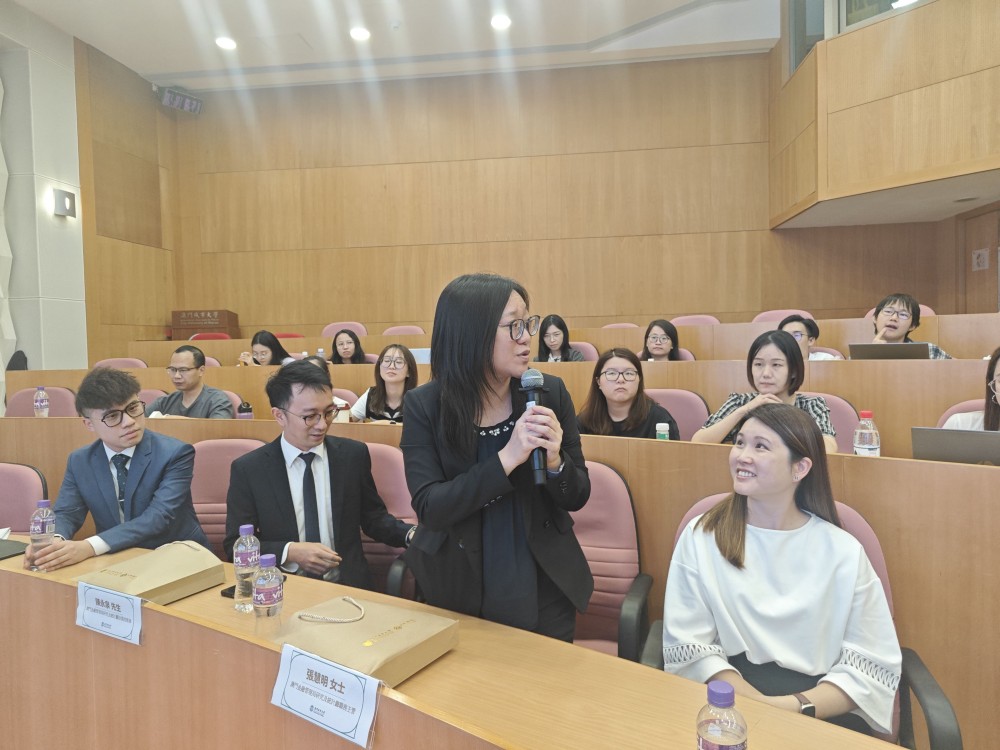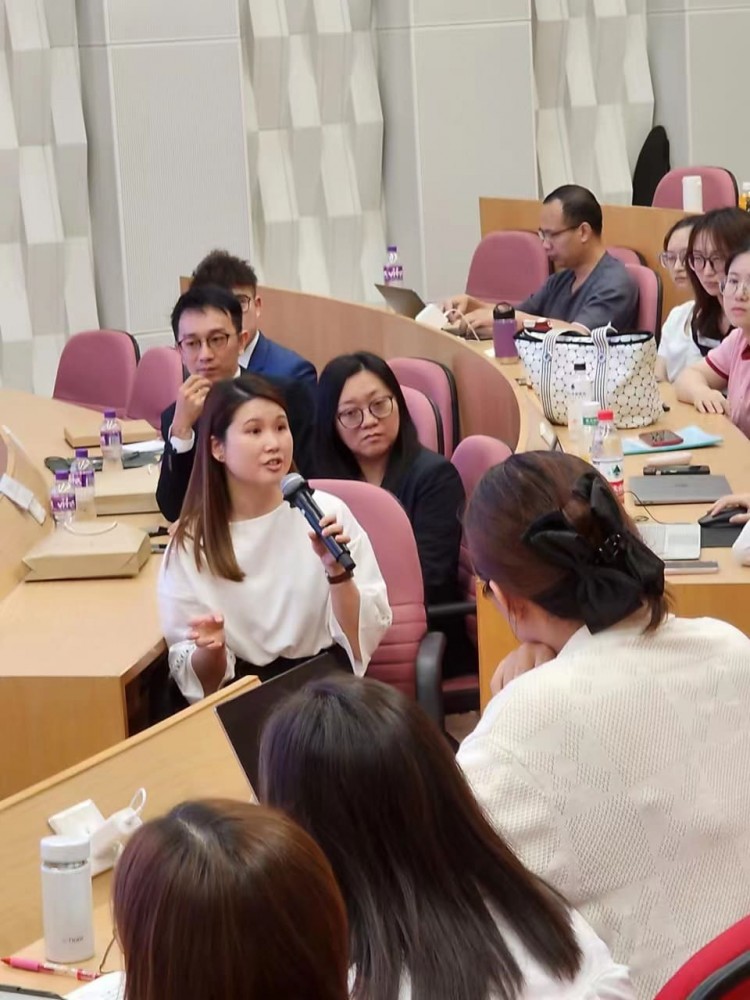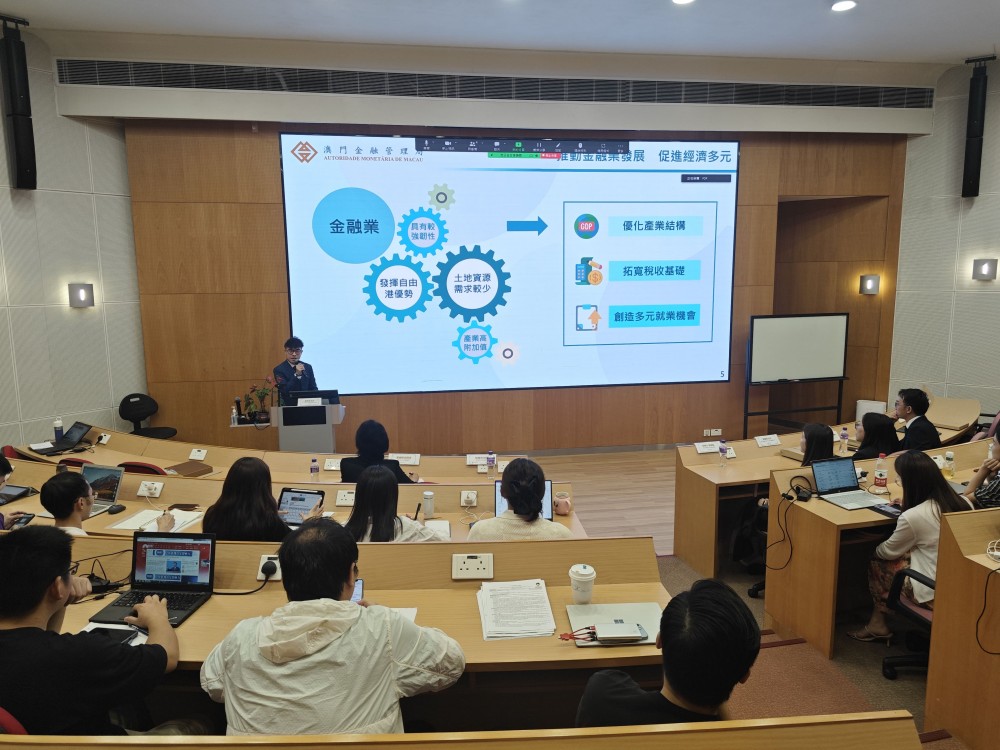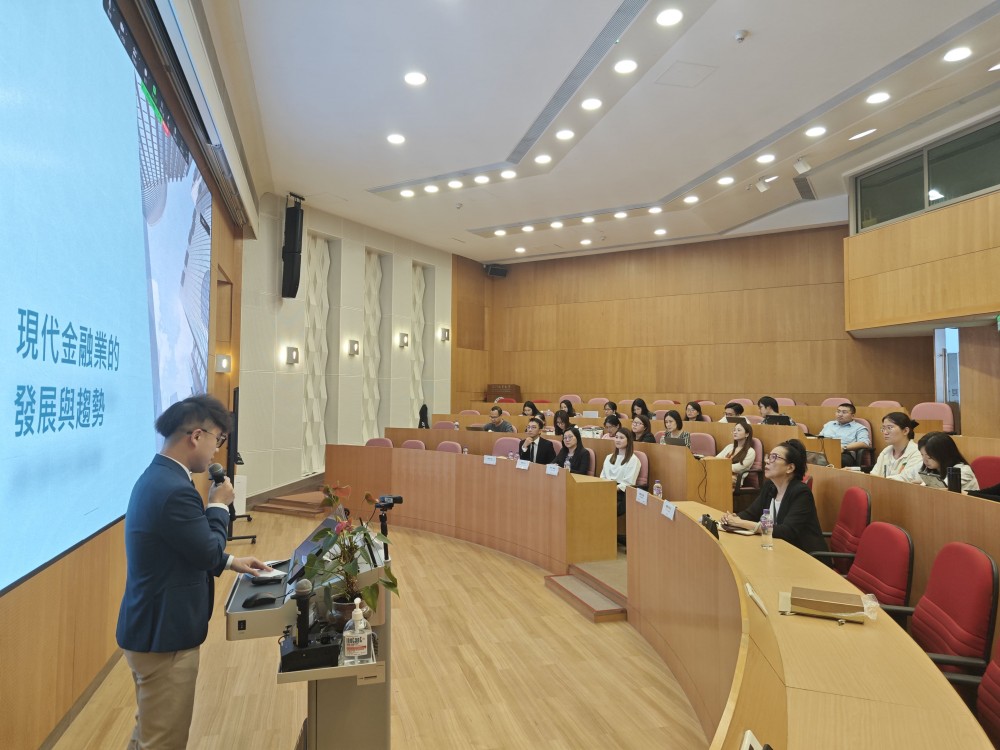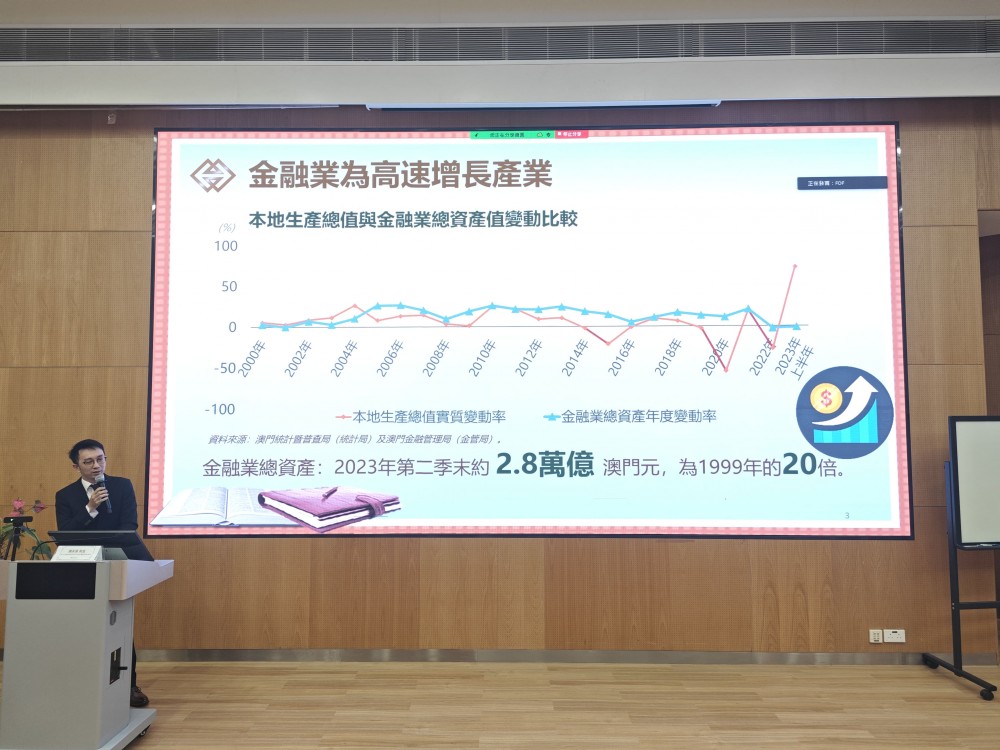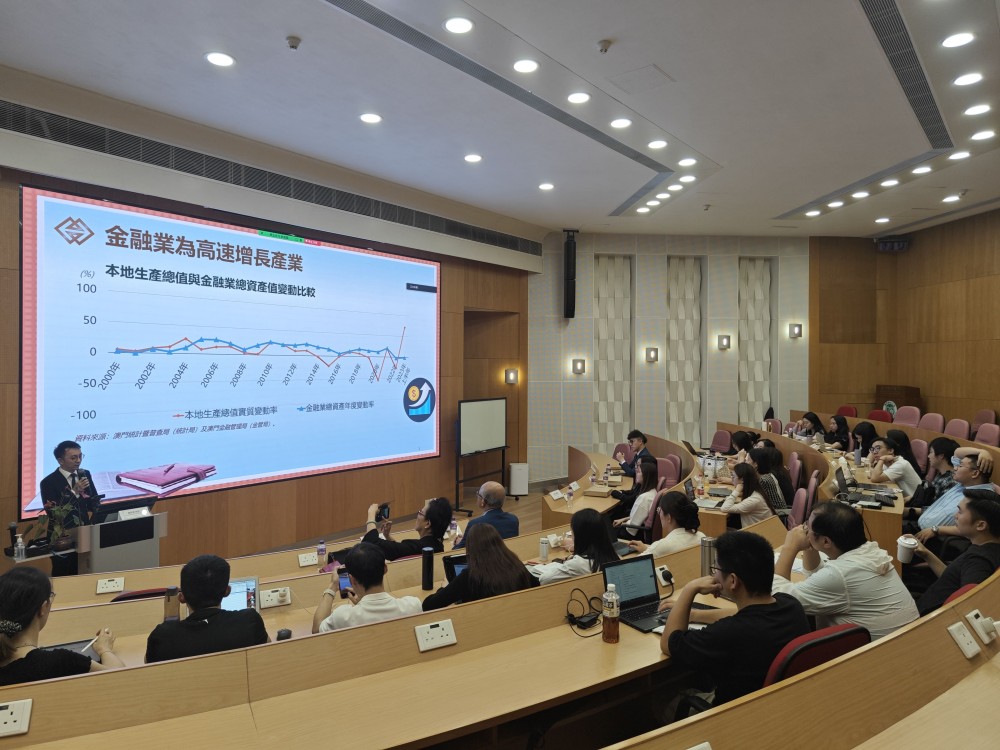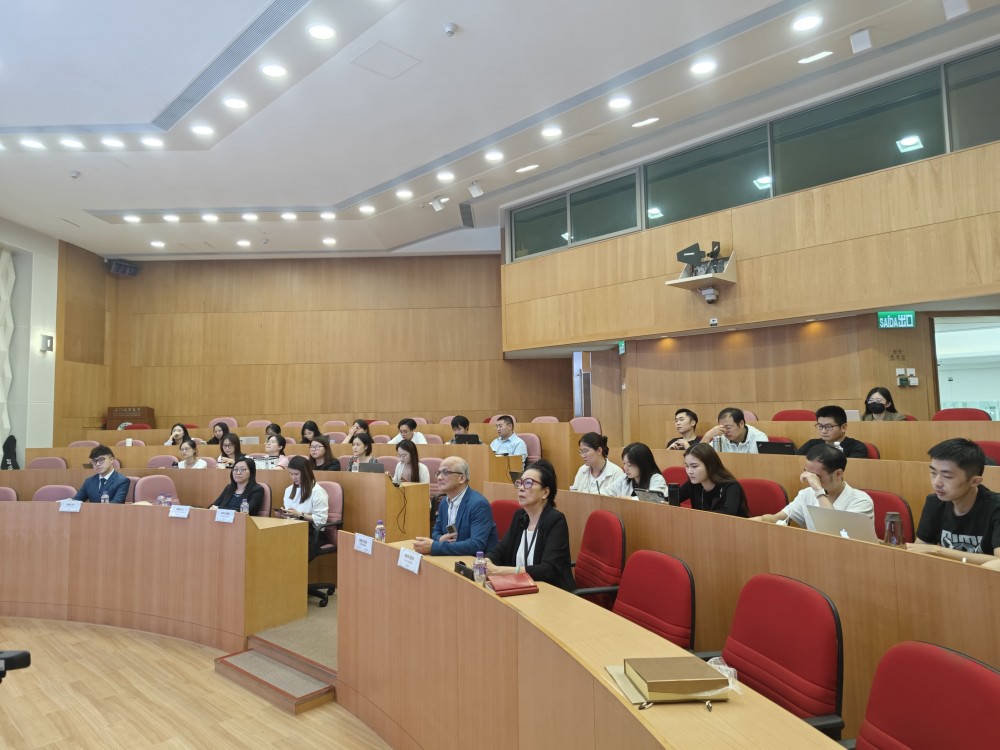City University of Macau (CityU) and the Monetary Authority of Macao (AMCM) co-organized an exchange forum on the theme of “Modern Finance to Explore Industrial Development and Employment Prospects” yesterday (April 26th). The event featured two thematic sessions aimed to facilitate discussions and exchanges with industry elites on topics such as modern finance development trends in Macao and measures for cultivating financial talents. The organizers hoped to encourage students to obtain professional qualifications in finance and plan their careers more effectively. The seminar was attended by Leong Man Ngan, Director of the Research and Statistics Department of the AMCM, as well as Vice Rector Ip Kuai Peng, University Consultant Ip Peng Kin, Pro-Rector Chu Te Lin, Dean Adrian Cheung Wai Kong, Associate Dean Eva Khong of the Faculty of Finance, and students.
Assistant Economist Chen Wing Chuen from the Research and Statistics Department of the Monetary Authority of Macau (AMCM) first introduced the overall situation of the financial industry in Macau. He pointed out that the financial industry is the second-largest industry in Macau, characterized by high-speed growth and stable growth potential. The banking and insurance sectors are the main components of the financial industry, with a total of 98 financial institutions granted operating licenses. The types of institutions and their business operations are becoming increasingly diverse. He then provided a brief overview of the development history of the AMCM, highlighting its main responsibilities, including advising and assisting in the formulation and implementation of monetary, financial, foreign exchange, and insurance policies. The AMCM also exercises the functions of the central reserve bank and manager of external payment instruments, which involve managing fiscal reserves and foreign exchange reserves. Additionally, the AMCM guides, coordinates, and supervises the monetary, financial, foreign exchange, and insurance markets in accordance with laws and regulations, monitors internal stability of the currency, and ensures its full convertibility. It also maintains stability in the financial system. The AMCM's main functions include currency issuance, reserve management (foreign exchange reserves and fiscal reserves), financial regulation, statistics and research, and financial development.
Assistant Technical Officer Cheng Kai Chung from the Financial Development Department of the AMCM shared the development trends of the modern financial industry and measures for nurturing financial talent. He mentioned that the continuous release of different policies and support measures by the national government to promote economic diversification reflects the opportunities for the development of the financial industry in the Guangdong-Hong Kong-Macau Greater Bay Area and the Shenzhen-Hong Kong Cooperation Zone. The annual policy address of the Macau government indicates the development plans for modern finance, including bond markets, wealth management, financial leasing, and financial talent. He then briefly discussed the current status and challenges of human resources in the financial industry in terms of salary levels, education levels, and technical skills. With the emergence of new business models, the number of job vacancies in the financial sector is increasing, and financial professionals are required to possess relevant qualifications. The AMCM is currently implementing plans for pre-employment education, on-the-job training, and professional qualification certification, in collaboration with various resources, to accelerate the cultivation of talent needed for new financial business models.
During the Q&A session, the guest speakers and students interacted enthusiastically, providing clarification and answering questions, which helped the students gain a clearer understanding of the current development and prospects of the Monetary Authority of Macao and the modern financial industry. This interaction was beneficial in discovering their own future career paths. Once again, the faculty and students of the School of Finance express their gratitude to the guest speakers for their valuable insights, which provided the students with in-depth knowledge of the Financial Development Department and the Research and Statistics Department of the Monetary Authority of Macao.



